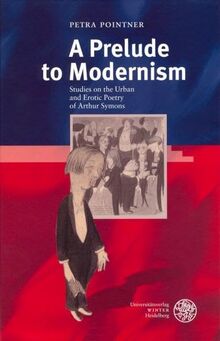
Although Arthur Symons was almost exclusively known as one of the leading literary theorists and critics of the 1890s, whose outstanding merit lay in the introduction of French Symbolism to British literary circles, the author himself regarded his poetry as his main achievement. His lyrical renderings of his erotic and urban experience - echoing major works of European city and love poetry from the Renaissance to early Modernism - were felt to be incompatible with the late-Victorian concept of decorum and therefore rashly dismissed as dreary indecencies. This study revaluates Symons's contribution to the formation of a modern voice in English poetry, reading his most accomplished compositions as preludes to intertextual poetical masterworks of the 20th century.